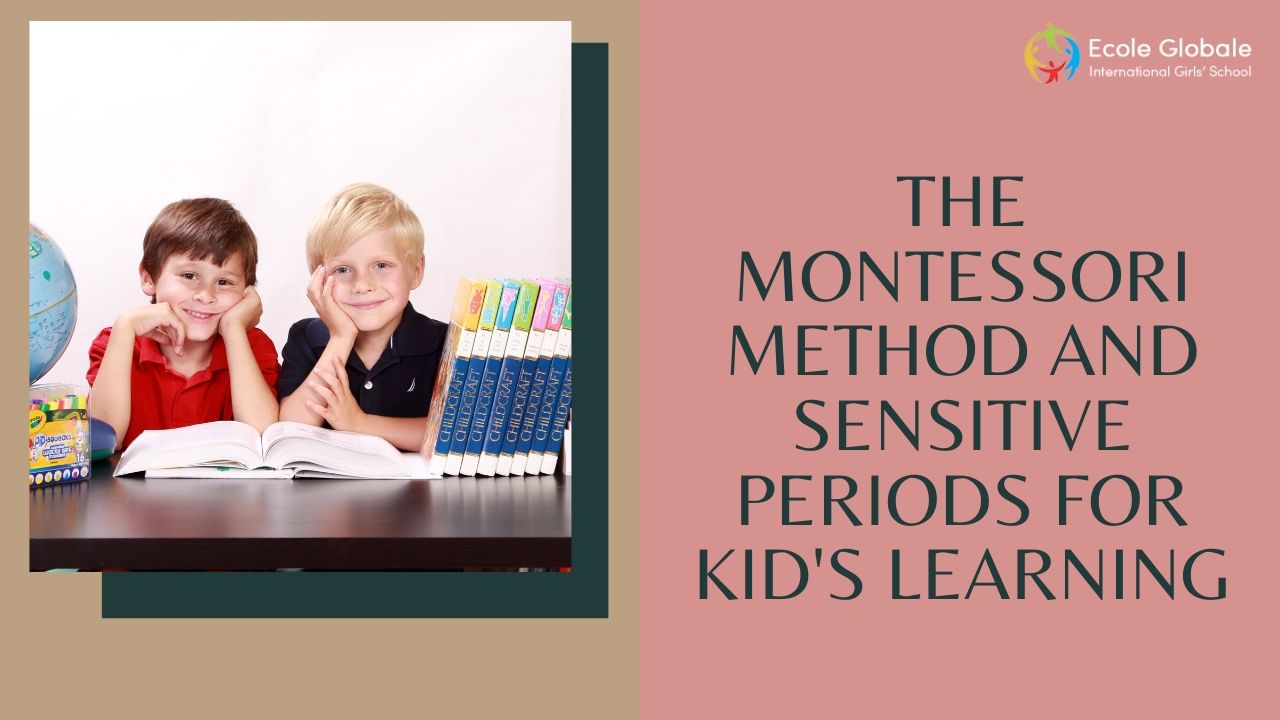Maria Montessori, the first female physician in Italy, pioneered an approach to the education of children known as The Montessori Method. Her entire life, she studied how children learn. A developmental theory explaining her approach to early childhood education was developed by her in addition to the practical application of her ideas in Montessori schools.
Key Takeaways: The Montessori Method
- The Montessori theory was given by Italian doctor Maria Montessori. An important theory of childhood development was given by her.
- According to her theory, there are four planes of development namely, absorbent mind (birth-6 years old), reasoning mind (6-12 years old), social consciousness (12-18 years old), and transition to adulthood (18-24 years old).
- Adults need to support the child during “sensitive periods” that occurs between birth and six years of age. Once they have passed, they never happen again.
Planes of Development
Montessori posited that regardless of cultural differences, all children experience the same developmental milestones at approximately the same ages. She also observed that in a child’s development, the physical milestones like walking and talking occur at the same time, and important psychological milestones also occur with these physical developments.
Between infancy and young adulthood, Montessori outlined four distinct planes of development that take place. For optimal learning to occur, changes in the educational environment are required as a result of physical and psychological changes. there are many Montessori methods of teaching material we help small children through which they can understand better with a variety of new development techniques material
1. The Absorbent Mind (Birth to 6 years old)
Children have an absorbent mind during this plane of development. Children absorb the information from everyone and everything constantly and eagerly and thus learning effortlessly.
This plane was further divided into two phases. The first phase, also called an unconscious stage, occurs between birth and three years old when children unconsciously take in the information. They develop basic skills by learning through imitation.
The second phase, also known as the conscious stage, occurs between 3 and 6 years old. During this stage, children become more conscious of the experiences they seek and thus maintain their absorbent minds. They want to become capable enough to do things themselves and make their own choices and are motivated to expand their skills.
We can also characterize the plane of absorbent mind by Montessori’s “sensitive periods”. To master certain tasks, sensitive periods are the optimal points.
For the children in the conscious stage of the absorbent mind plane, Montessori schools included various programs. During this stage, children are left uninterrupted in the Montessori classrooms so that they can learn as much as they want. A plethora of well-organized and attractive learning materials are present in each classroom. Children decide themselves which material they want to use with a little guidance of a teacher in making choices. Thus a child is made responsible for educating themselves.
2. The Reasoning Mind (6 to 12 years old)
Children complete their sensitive periods and grow out of the absorbent mind plane at around six years of age. Now they become more philosophical and group-oriented and having abstract and logical thinking. They begin to think about their roles in society and ask various moral questions.
In Montessori schools, Practical subjects and the related materials are provided in the classrooms. To dive deeper into subjects like math, science, etc., an instructor guides them carefully.
3. Development of Social Consciousness (12 to 18 years old)
Both physical and psychological changes occur in an adolescent. Thus Montessori believed that children in this age are no longer devoted to academic pursuits because they don’t have the same energy as they had in earlier stages. Thus she said that learning at this stage should be connected to the skills connecting the child to the adult world.
Montessori suggested that adolescents should be made to do tasks like making clothes, cooking, etc. together. In this way, they will become independent and will learn to work with others.
4. Transitioning to Adulthood (18 to 24 years old)
In early adulthood, when individuals are busy exploring their careers or choosing a path, the final plane of development occurs. At this stage, people with enjoyable career choices must have received all the resources required at each developmental planes.
Sensitive Periods
Several sensitive periods are specified by Montessori, which include:
- Sensitive Period for Order – Children have a strong desire for order during the first three years of life. By putting back all the things back at their place, they maintain order in the environment when they can move.
- Sensitive Period for Tiny Objects — When the children are around 12 months old, they begin to notice small details which adults usually miss and they are more interested in tiny objects or background objects. Thus this change represents the development of their mental abilities.
- A sensitive period for walking – Children around one year old are focused on learning to walk. And once they learn to walk, they continue their practice to fine-tune their ability.









